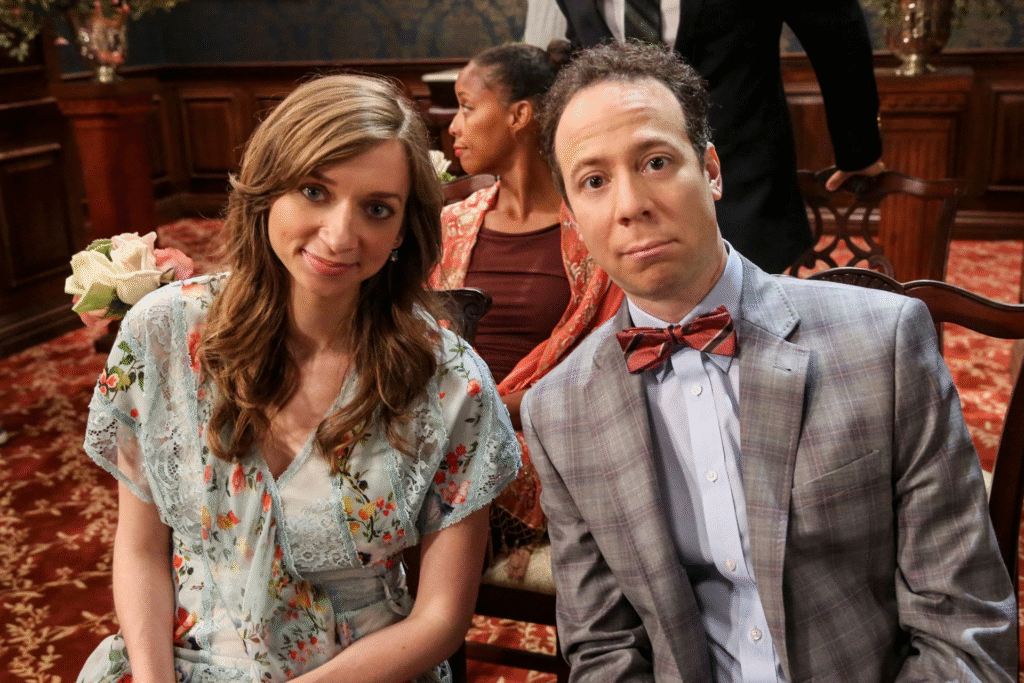Stuart Bloom, played by Kevin Sussman, was never the star of The Big Bang Theory. As the perpetually unlucky comic book shop owner, he was a fan-favorite sidekick, often overshadowed by Sheldon’s arrogance or Leonard’s romantic woes. Now, Stuart Fails to Save the Universe puts him front and center as an unlikely hero tasked with navigating chaotic multiversal rifts. According to industry reports, the series will explore Stuart’s attempts to “save” various universes, only to bumble through with his trademark self-deprecation and charm.
The show’s premise hinges on Stuart stumbling into a multiversal crisis, possibly triggered by a sci-fi MacGuffin from his comic shop. Each episode will reportedly feature alternate realities—think a universe where Raj is a Bollywood star or Amy Farrah Fowler rules as a dictator-scientist. These variations allow the return of original cast members like Jim Parsons and Kaley Cuoco in fresh roles, sidestepping the challenge of reassembling the full ensemble after the original series ended in 2019. Posts on X buzz with excitement about seeing “evil Sheldon” or F“rockstar Penny,” reflecting fan enthusiasm for these creative twists.
Why Sitcoms and the Multiverse Mesh
The multiverse is a natural fit for sitcoms, which thrive on familiarity but often struggle with stagnation. By introducing alternate realities, Stuart Fails to Save the Universe can keep the Big Bang formula—nerdy banter, quick gags—while exploring new stakes. Imagine an episode where Howard’s astronaut dreams lead to a space empire, or Bernadette’s microbiology expertise spawns a zombie apocalypse. The multiverse lets writers reset dynamics without betraying the original show’s spirit, offering endless “what if” scenarios that keep viewers hooked.
This approach mirrors how WandaVision blended sitcom tropes with Marvel’s multiversal chaos, paying homage to classics like I Love Lucy while unraveling a larger mystery. Stuart Fails to Save the Universe seems poised to follow suit, using the multiverse to poke fun at sitcom conventions while delivering the emotional beats Big Bang fans crave. The show’s creators, including Big Bang veteran Chuck Lorre, aim to balance humor with heart, ensuring Stuart’s underdog journey resonates across dimensions.
Challenges of a Multiversal Sitcom
Blending sitcoms with sci-fi isn’t without risks. The multiverse can feel gimmicky if not grounded in character-driven storytelling. Big Bang succeeded because its humor stemmed from relatable quirks—Sheldon’s rigidity, Penny’s sarcasm—not high-stakes sci-fi. If Stuart Fails to Save the Universe leans too heavily on cosmic spectacle, it could alienate viewers who loved the original’s low-key charm. The show must also avoid overcomplicating its narrative, as multiverse stories like Doctor Strange in the Multiverse of Madness have been criticized for convoluted plots that prioritize cameos over coherence.
Another hurdle is fan expectation. Big Bang ran for 12 seasons, amassing a loyal audience that may resist change. X posts show some skepticism, with users wondering if the multiverse will dilute the original’s grounded humor or feel like a cash grab. To succeed, the show needs to keep Stuart’s hapless sincerity at its core, using the multiverse to amplify his growth rather than overshadow it. Casting familiar faces in new roles could help, but the writing must ensure these variants feel purposeful, not just nostalgic pandering.
A Broader Trend in TV
Stuart Fails to Save the Universe isn’t alone in embracing the multiverse. Shows like Rick and Morty and The Flash have used parallel universes to explore alternate character arcs, while WandaVision and Loki proved the concept’s mainstream appeal. The multiverse lets creators experiment without breaking canon, a tactic that’s especially useful for sitcoms seeking fresh angles after long runs. For instance, Community dabbled with alternate timelines in its iconic “Remedial Chaos Theory” episode, showing how small changes could reshape dynamics.
This trend reflects a broader shift in entertainment, where franchises aim to be all-encompassing, blending movies, games, and series into interconnected universes. As noted in a 2021 Verge article, companies like Marvel and Amazon are building multimedia empires, with properties like Pokémon Unite or The Bird That Drinks Tears expanding into games, shows, and more. Stuart Fails to Save the Universe fits this mold, leveraging Big Bang’s brand to explore new storytelling frontiers while keeping HBO Max competitive in a crowded streaming market.
What’s at Stake for Stuart and Fans
For Stuart, the multiverse is a chance to shine, proving he’s more than a lovable loser. His journey—likely filled with cosmic mishaps and heartfelt moments—could resonate with anyone who’s felt overlooked. For fans, the show offers a nostalgic return to Pasadena with a sci-fi twist, promising fresh takes on beloved characters. If executed well, it could pave the way for more sitcoms to embrace bold concepts, much like The Good Place tackled existential philosophy.
The series is set to debut in early 2026, with production already underway. While details on episode count and cast are still emerging, the involvement of Lorre and Sussman suggests a commitment to Big Bang’s legacy. Whether Stuart saves the universe or hilariously fails, this show could mark a turning point for sitcoms, proving they can venture beyond the couch and into the cosmos.
